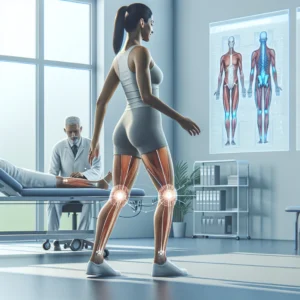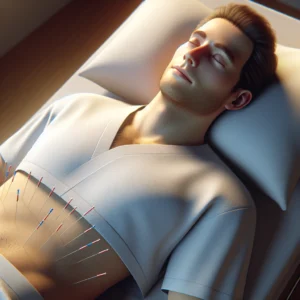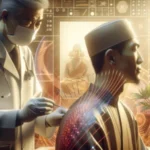Maximize Your Post-Surgical Recovery with the Power of Acupuncture
Acupuncture has risen to prominence as a highly effective tool in enhancing the recovery process following surgical procedures. This time-honored practice, deeply rooted in the principles of traditional Chinese medicine, offers more than mere symptom relief; it provides a holistic approach to healing post-surgery. By tapping into the body’s intricate energy systems, patients can markedly improve recovery outcomes, experience diminished pain, and achieve a higher level of overall well-being throughout their healing journey. The integration of acupuncture into post-surgical care facilitates a balanced and effective recovery process.
Experience a Transformative Healing Journey with Acupuncture After Surgery
The remarkable benefits of acupuncture for post-surgical recovery stem from its unique capability to enhance blood circulation and reduce inflammation, both of which are crucial for a successful healing process. After surgery, the body undergoes significant trauma, triggering inflammation as part of its natural healing mechanism. While some levels of inflammation are beneficial, excessive inflammation can hinder recovery and extend healing times. Acupuncture is pivotal in managing this response by promoting blood flow and supporting the body’s intrinsic healing capabilities.
Numerous scientific studies have shown that acupuncture significantly enhances microcirculation around the surgical site, which is essential for optimal nutrient delivery and efficient waste removal. This improved blood flow not only accelerates tissue repair but also alleviates common pain and discomfort often experienced during recovery. Additionally, acupuncture stimulates collagen production, an essential protein for effective tissue repair and regeneration. Many patients who include acupuncture in their recovery plans report a noticeable reduction in recovery time, allowing them to resume their normal activities more quickly.
Moreover, acupuncture plays a crucial role in regulating the body’s stress response, an aspect that should not be overlooked during recovery. The anxiety and emotional challenges that frequently accompany surgical procedures can significantly impede healing, making it essential to address both mental and emotional health as part of the recovery process. By promoting relaxation and lowering stress levels, acupuncture creates a supportive environment for physical healing, showcasing its multifaceted benefits in post-surgical recovery.
 Understanding the Scientific Mechanisms Behind Acupuncture’s Pain Relief
Understanding the Scientific Mechanisms Behind Acupuncture’s Pain Relief
Investigating the fundamental mechanisms through which acupuncture facilitates pain relief reveals the depth of its therapeutic potential. Acupuncture interacts with pain pathways via its effects on the nervous system. When needles are inserted with precision at designated points on the body, they stimulate sensory neurons that transmit signals to the brain, effectively modifying pain perception and significantly lowering its intensity.
A notable advantage of acupuncture is its capacity to trigger the release of endorphins, the body’s natural painkillers. This release not only alleviates pain but also cultivates an overall sense of well-being, especially vital during the sensitive post-surgical period. Furthermore, acupuncture assists in the modulation of neurotransmitters involved in pain management, leading to a more balanced and effective approach to controlling discomfort.
Recent studies suggest that acupuncture can significantly reduce the reliance on opioid medications for patients recovering from surgery. Given the growing concerns surrounding the opioid epidemic, it is imperative to explore alternative strategies for pain management. By incorporating acupuncture into post-surgical care, patients may lessen their dependence on powerful painkillers, thereby decreasing the risk of addiction and other adverse effects.
Inspiring Testimonials: Real-Life Accounts of Recovery Enhanced by Acupuncture
The extraordinary effects of acupuncture are vividly illustrated through personal testimonials from individuals who have integrated this therapy into their post-surgical recovery journeys. Numerous patients report substantial enhancements in their healing experiences, highlighting reductions in pain, improved mobility, and shorter recovery periods.
For instance, one patient who underwent knee replacement surgery shared how regular sessions of acupuncture alleviated persistent pain following the operation. Consistent treatments resulted in a marked decrease in pain and improved range of motion, enabling them to engage more actively in their physical therapy.
Another patient, recovering from abdominal surgery, recounted how acupuncture facilitated a smoother healing process. They emphasized that treatments aimed at targeting inflammation and managing pain allowed them to regain strength faster than expected. This individual recognized the importance of addressing both the physical and emotional aspects of recovery, acknowledging that acupuncture was instrumental in alleviating anxiety related to the healing journey.
These authentic accounts underscore the effectiveness of acupuncture for post-surgical recovery and highlight the holistic approach that leads to improved health outcomes. As more individuals integrate acupuncture into their recovery strategies, an expanding array of success stories reinforces its crucial role in contemporary healing practices.
Thorough Examination of the Extensive Benefits of Acupuncture in Surgical Rehabilitation
Acupuncture goes beyond mere pain relief techniques; it offers a wide array of benefits that can significantly enhance post-surgical rehabilitation. From reducing dependency on medications to enhancing mental well-being, the numerous advantages of incorporating acupuncture into recovery strategies are both comprehensive and impactful.
Effective Strategies for Reducing Dependence on Pain Medications After Surgery
The ongoing opioid crisis highlights the urgent need for effective alternatives to traditional pain management strategies, particularly following surgical interventions. Acupuncture emerges as a compelling solution, with a wealth of studies demonstrating its efficacy in decreasing reliance on opioid analgesics. By focusing on specific acupuncture points, practitioners can equip patients with effective techniques to manage pain without the associated risks of medication dependency.
In clinical settings, patients who receive acupuncture in conjunction with standard pain management practices often experience significant reductions in their medication requirements. This reduction not only lowers the risk of adverse side effects but also creates a pathway for a more sustainable recovery journey. By addressing pain at its source and fostering natural healing, acupuncture empowers patients to navigate their recovery with increased comfort and confidence.
Additionally, incorporating acupuncture into pain management protocols frequently improves patient satisfaction. Many individuals express relief at discovering a non-invasive, drug-free alternative that aligns with their holistic health perspectives. This shift towards acupuncture reflects a broader trend in healthcare as patients increasingly seek comprehensive methods that prioritize long-term wellness.
 Enhancing Mobility and Easing Stiffness After Surgical Procedures
Enhancing Mobility and Easing Stiffness After Surgical Procedures
Post-surgical recovery often presents challenges related to mobility and stiffness, particularly following orthopedic surgeries. Acupuncture plays a vital role in improving joint function and flexibility, both of which are essential for regaining full mobility after surgery.
By promoting improved blood circulation and reducing inflammation, acupuncture effectively alleviates stiffness and discomfort in affected areas. Many patients report enhanced range of motion and diminished joint stiffness after undergoing acupuncture treatments. For example, those recovering from hip or knee surgeries often find that acupuncture helps to relax tight muscles and connective tissues, enabling them to engage more effectively in rehabilitation exercises.
Moreover, acupuncture supports the body’s natural healing mechanisms by relieving muscle tension and encouraging relaxation. This is especially beneficial for patients who may be reluctant to exercise due to fears of pain or re-injury. As acupuncture alleviates discomfort and enhances mobility, patients often feel more empowered to actively participate in their recovery, resulting in improved overall outcomes.
Promoting Mental Health and Fostering Emotional Resilience During Recovery
The psychological impact of surgery can be profound, leaving many patients struggling with feelings of anxiety, depression, and stress. Acupuncture provides a holistic solution for mental health support during the recovery phase. By fostering relaxation and emotional balance, acupuncture can significantly enhance the mental well-being of individuals recovering from surgery.
Research indicates that acupuncture effectively modulates the body’s stress response, leading to reduced cortisol levels—a hormone closely associated with stress. This hormonal equilibrium promotes a sense of calm and well-being, which is essential for patients navigating the emotional complexities that often accompany surgical recovery.
Additionally, acupuncture sessions create a dedicated space for patients to focus on their healing, encouraging mindfulness and self-care. This aspect of treatment can be particularly beneficial for individuals who may feel isolated or overwhelmed during their recovery process. By incorporating acupuncture into their care plans, patients can cultivate a greater sense of control over their healing journey, ultimately leading to improved mental health outcomes.
Customizing Acupuncture Techniques for Various Surgical Procedures
The flexibility of acupuncture allows it to be tailored to meet the unique needs of patients recovering from different surgical interventions. Practitioners can employ diverse techniques designed specifically for each type of surgery, ensuring that every patient receives optimal care.
Targeted Acupuncture Techniques for Orthopedic Surgery Recovery
Acupuncture can offer substantial benefits for individuals recovering from orthopedic surgeries, such as knee, hip, or shoulder operations. Specific techniques can target pain relief, reduce inflammation, and improve mobility in the affected joints.
For knee surgeries, for example, acupuncture points located on the lower back and legs may be stimulated to alleviate pain and promote healing. These points are strategically selected to enhance circulation and minimize swelling, facilitating a smoother recovery process. Additionally, acupuncture aids in rebuilding strength in surrounding muscles, which is crucial for restoring function.
In cases of hip surgeries, acupuncture can target pain in the groin and lower back, areas that are frequently affected by hip joint issues. By concentrating on specific points, practitioners can encourage relaxation and reduce stiffness, allowing patients to engage more fully in their physical rehabilitation.
Shoulder surgeries can greatly benefit from acupuncture techniques aimed at relieving tension in the upper back and neck. By alleviating tightness in these regions, acupuncture can enhance shoulder mobility and minimize discomfort, enabling patients to return to their daily activities more quickly.
 Utilizing Acupuncture for Recovery After Abdominal Surgery
Utilizing Acupuncture for Recovery After Abdominal Surgery
Abdominal surgeries, such as appendectomies or cesarean sections, can lead to significant discomfort and challenges during recovery. Acupuncture serves as a crucial resource, facilitating pain relief and promoting the healing of internal tissues.
Following abdominal surgery, acupuncture can help to alleviate inflammation and encourage healing in the adjacent tissues. Practitioners may select specific points to enhance blood flow to the abdomen, which is vital for healing internal wounds. Patients often report a reduction in pain and discomfort after treatment, enabling them to focus on their recovery without the burden of excessive pain.
Furthermore, acupuncture can assist with digestive issues that may arise post-surgery. Many patients experience disruptions in bowel function following abdominal procedures, and acupuncture has been shown to help regulate digestive processes. This combination of pain relief and digestive support renders acupuncture a holistic approach for post-abdominal surgery recovery.
Customizing Acupuncture Techniques for Cardiac Surgery Recovery
After cardiac surgery, patients face a unique set of recovery challenges that acupuncture can effectively address. Techniques specifically designed to facilitate healing and minimize complications are essential in this context.
Acupuncture enhances circulation, a vital component in recovering from heart surgery. By promoting blood flow and reducing inflammation, acupuncture supports tissue healing and helps prevent postoperative complications such as blood clots.
Moreover, acupuncture can significantly alleviate anxiety and emotional distress commonly experienced after cardiac procedures. Many patients report heightened stress levels during recovery, and the calming effects of acupuncture can help alleviate these feelings. By fostering relaxation and promoting a sense of well-being, acupuncture addresses both the physical and emotional aspects of recovery.
Patients who include acupuncture in their post-cardiac surgery care frequently report increased energy levels and an overall enhanced sense of health. This holistic approach aligns with comprehensive recovery goals, ensuring that patients receive support across all dimensions of their healing journey.
Integrating Acupuncture into Your Personalized Recovery Strategy
Incorporating acupuncture into post-surgical recovery plans necessitates careful consideration and strategic planning. Patients should be informed about the ideal timing for treatments, how to find qualified practitioners, and how to harmonize acupuncture with other therapies for maximum effectiveness.
Determining the Best Timing to Begin Acupuncture Post-Surgery
Timing is crucial when initiating acupuncture treatments after surgery. It is generally advised that patients wait until the surgical site has stabilized, a timeframe that varies depending on the type of procedure and individual healing rate. Consulting with healthcare professionals can provide valuable insights into when to commence acupuncture therapy.
Typically, patients may begin acupuncture sessions within a few days to a week following surgery, contingent on their overall condition and the specifics of the surgical intervention. Early intervention can significantly enhance recovery by addressing pain and inflammation. Acupuncture may be particularly beneficial during the critical initial weeks when the body is actively healing and requires additional support.
In addition, the frequency of acupuncture sessions can be customized to meet individual needs. Some patients may benefit from more frequent treatments during the early stages, tapering off as their recovery progresses. This adaptable approach ensures that patients receive the necessary support throughout their healing journey.
 Guidelines for Choosing the Right Acupuncturist for Your Recovery Needs
Guidelines for Choosing the Right Acupuncturist for Your Recovery Needs
Choosing a qualified acupuncturist is essential for ensuring effective post-surgical care. Patients should seek practitioners with relevant experience and credentials, particularly in treating individuals recovering from surgery.
When searching for an acupuncturist, consider key factors such as their training, certifications, and areas of specialization. Many practitioners have experience treating post-surgical patients and can customize their techniques accordingly. Additionally, seeking referrals from healthcare providers or fellow patients can help identify reputable practitioners.
A thorough consultation can provide insights into the acupuncturist’s methods and philosophy. Patients should feel comfortable discussing their surgical history and recovery objectives to ensure that the acupuncturist can create a tailored treatment plan that addresses their unique needs.
Enhancing Recovery Through the Synergy of Acupuncture and Physical Therapy
The combination of acupuncture and physical therapy can yield significant benefits for post-surgical recovery. Both therapeutic modalities aim to restore function and accelerate the healing process, making them complementary components of a comprehensive recovery strategy.
Acupuncture can prepare the body for physical therapy by alleviating pain and inflammation, enabling patients to engage more fully in rehabilitation exercises. When patients experience reduced discomfort, they are more likely to participate actively in their physical therapy sessions, leading to improved outcomes.
Additionally, acupuncture can address emotional or psychological barriers that may emerge during physical therapy. By fostering relaxation and reducing anxiety, acupuncture creates a supportive environment for patients to fully commit to their rehabilitation efforts.
As patients navigate their recovery journeys, the integration of acupuncture and physical therapy can empower them to reclaim their health and well-being, resulting in a more successful recovery process.
Clearing Up Common Misconceptions and Concerns About Acupuncture
Despite the growing popularity of acupuncture, many individuals hold concerns and misconceptions that might deter them from pursuing this therapeutic option. Addressing these issues is crucial to facilitate informed decision-making regarding post-surgical care.
Ensuring the Safety of Acupuncture After Surgical Procedures
Safety is a primary concern for patients considering acupuncture after surgical interventions. Fortunately, when performed by a licensed and experienced acupuncturist, acupuncture is deemed safe for most individuals. The use of sterile needles and adherence to established protocols significantly mitigates the risk of complications.
Nonetheless, patients should always disclose their surgical history and any underlying health conditions to their acupuncturist before commencing treatment. This open communication ensures that the practitioner can tailor their approach to address specific concerns and optimize patient safety.
In some cases, certain acupuncture points may be avoided to prevent complications or discomfort at the surgical site. A knowledgeable acupuncturist will possess the expertise to navigate these considerations effectively, ensuring that patients receive safe and beneficial care.
Understanding Insurance Coverage for Acupuncture in Recovery
Insurance coverage for acupuncture can vary widely among providers and individual plans. Many insurance policies now recognize acupuncture as a legitimate treatment option for pain management and recovery, particularly in relation to post-surgical care.
Patients are encouraged to reach out to their insurance providers to inquire about coverage for acupuncture treatments related to their surgical recovery. Understanding the specifics of coverage, including co-pays and limitations, can assist patients in navigating the financial aspects of their care.
Moreover, some practitioners may offer payment plans or sliding scale fees for patients without insurance coverage. Exploring these options can enhance access to acupuncture, allowing individuals to benefit from this valuable therapy during their recovery.
Setting Realistic Expectations for Acupuncture Outcomes
Establishing realistic expectations regarding the timeline for experiencing acupuncture benefits is crucial for patients. While some individuals may experience immediate relief from pain and discomfort, others may require multiple sessions to observe significant improvements in their recovery.
Patients often begin to feel the therapeutic effects of acupuncture after a few sessions, especially when addressing acute pain or inflammation. However, it may take several weeks of consistent treatment for chronic issues or more complex recovery scenarios to achieve optimal results.
Open communication with their acupuncturist regarding experiences and progress is encouraged for patients. This feedback can assist practitioners in tailoring treatment plans to ensure that patients receive the most effective care throughout their recovery journey.
 Future Trends and Research Directions in Post-Surgical Acupuncture
Future Trends and Research Directions in Post-Surgical Acupuncture
As the field of acupuncture continues to advance, ongoing research and emerging trends are shaping the future of this therapeutic practice, particularly concerning post-surgical recovery.
Exploring New Research on Acupuncture and Recovery
Recent studies are beginning to investigate the efficacy of acupuncture in various post-surgical contexts, illuminating its potential benefits. Researchers are exploring specific acupuncture protocols tailored for different surgical procedures to establish evidence-based guidelines for practitioners.
These investigations not only validate long-standing practices of acupuncture but also pave the way for its integration into conventional medical care. As healthcare providers increasingly recognize the value of acupuncture, patients may find it more accessible as a complementary treatment option.
Furthermore, there is a growing emphasis on personalized treatment plans, with researchers examining the significance of customized acupuncture protocols tailored to individual patient characteristics and specific types of surgeries. This individualized approach ensures that acupuncture is optimized for each patient’s unique circumstances, thereby enhancing its overall efficacy.
Technological Innovations Transforming Acupuncture Therapy
The integration of technology into acupuncture practice represents an exciting trend that holds great promise for the future of post-surgical care. Innovations such as laser acupuncture and electroacupuncture are gaining popularity, providing alternative methods for administering treatment.
Laser acupuncture employs low-level lasers to stimulate acupuncture points without the use of needles, making it an appealing option for individuals with needle aversions or those seeking a non-invasive alternative. This technique can be especially advantageous for patients recovering from surgery who may have reservations about traditional acupuncture.
Electroacupuncture, which applies electrical currents to acupuncture needles, can enhance treatment effects by delivering deeper stimulation of acupuncture points. This advanced technique has shown promise in improving pain and inflammation reduction more effectively than conventional methods alone.
As technological advancements continue, the potential for integrating acupuncture with other therapeutic modalities is likely to expand, offering patients more comprehensive and effective treatment options for their post-surgical recovery.
Highlighting the Role of Acupuncture in Holistic Recovery Approaches
As the healthcare landscape increasingly embraces a holistic approach to patient care, acupuncture emerges as a cornerstone of comprehensive recovery plans. By addressing the physical, emotional, and psychological dimensions of healing, acupuncture supports patients in achieving optimal recovery outcomes.
Incorporating acupuncture into multidisciplinary care teams allows healthcare providers to offer a more comprehensive approach to post-surgical recovery. Collaboration among acupuncturists, surgeons, physical therapists, and mental health professionals ensures that patients receive the holistic support they require.
As awareness of acupuncture’s benefits continues to expand, patients can anticipate increased integration of this therapy into their recovery plans. By adopting the holistic principles of acupuncture, individuals can navigate their post-surgical journeys with greater resilience and overall well-being.
Your Questions Answered: Frequently Asked Questions About Acupuncture
What is acupuncture, and how does it work?
Acupuncture is a practice rooted in traditional Chinese medicine that involves the insertion of thin needles into specific points on the body. This process stimulates the nervous system, enhancing healing by improving blood circulation, reducing inflammation, and alleviating pain.
Is acupuncture suitable for everyone?
While acupuncture is generally safe, individuals with certain health conditions or those who are pregnant should consult their healthcare providers before commencing treatment. A qualified acupuncturist can assess individual suitability.
How many acupuncture sessions are necessary for effective post-surgical recovery?
The number of acupuncture sessions required varies depending on individual needs and the type of surgery performed. Patients often start with weekly sessions and adjust frequency based on their progress and treatment response.
Can acupuncture help alleviate anxiety and depression after surgery?
Yes, acupuncture has demonstrated efficacy in promoting relaxation and alleviating symptoms of anxiety and depression. It serves as a valuable complementary treatment for enhancing mental health during recovery.
Will acupuncture cause discomfort during the treatment?
Most patients report minimal discomfort during acupuncture, often describing the sensation as a slight pinch or tingling. The needles used are extremely thin and sterile, which minimizes discomfort.
How long do the effects of acupuncture typically last?
The duration of acupuncture effects can vary. Some patients may experience relief for several days, while others may require ongoing sessions to maintain benefits, particularly in post-surgical contexts.
Does insurance cover acupuncture treatments?
Insurance coverage for acupuncture varies widely. Many plans now include acupuncture for pain management and recovery, so confirming specifics with your provider is essential.
Can acupuncture be combined with other treatments for enhanced effects?
Yes, acupuncture can effectively complement other therapies, such as physical therapy or medications, to optimize recovery outcomes. Consulting with healthcare providers for a coordinated approach is advisable.
Are there specific acupuncture points targeted during post-surgical recovery?
Yes, acupuncturists target specific points based on the type of surgery and individual patient needs. These points are selected to facilitate healing, minimize pain, and enhance overall recovery.
What is the best method to find a qualified acupuncturist?
To locate a qualified acupuncturist, seek licensed practitioners with experience in post-surgical care. Recommendations from healthcare providers or patient reviews can also assist in making your choice.
Presented By: Post-Surgery Acupuncture
The Article: Acupuncture for Healing After Surgery: Boost Your Recovery appeared first on https://mcrtherapies.co.uk
The Article Acupuncture for Recovery: Enhance Healing Post-Surgery appeared first on https://mcrtherapies.com
The Article Acupuncture for Healing: Boost Recovery After Surgery Was Found On https://limitsofstrategy.com


I really appreciate how you’ve highlighted the role of acupuncture in post-surgical recovery. I had a knee surgery last year, and my physical therapist suggested acupuncture as part of my rehabilitation process. At first, I was a bit skeptical—needles and all—but I decided to give it a try. The difference was honestly noticeable. Not only did it help manage my pain, but I also felt more relaxed and balanced overall.